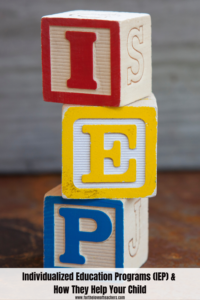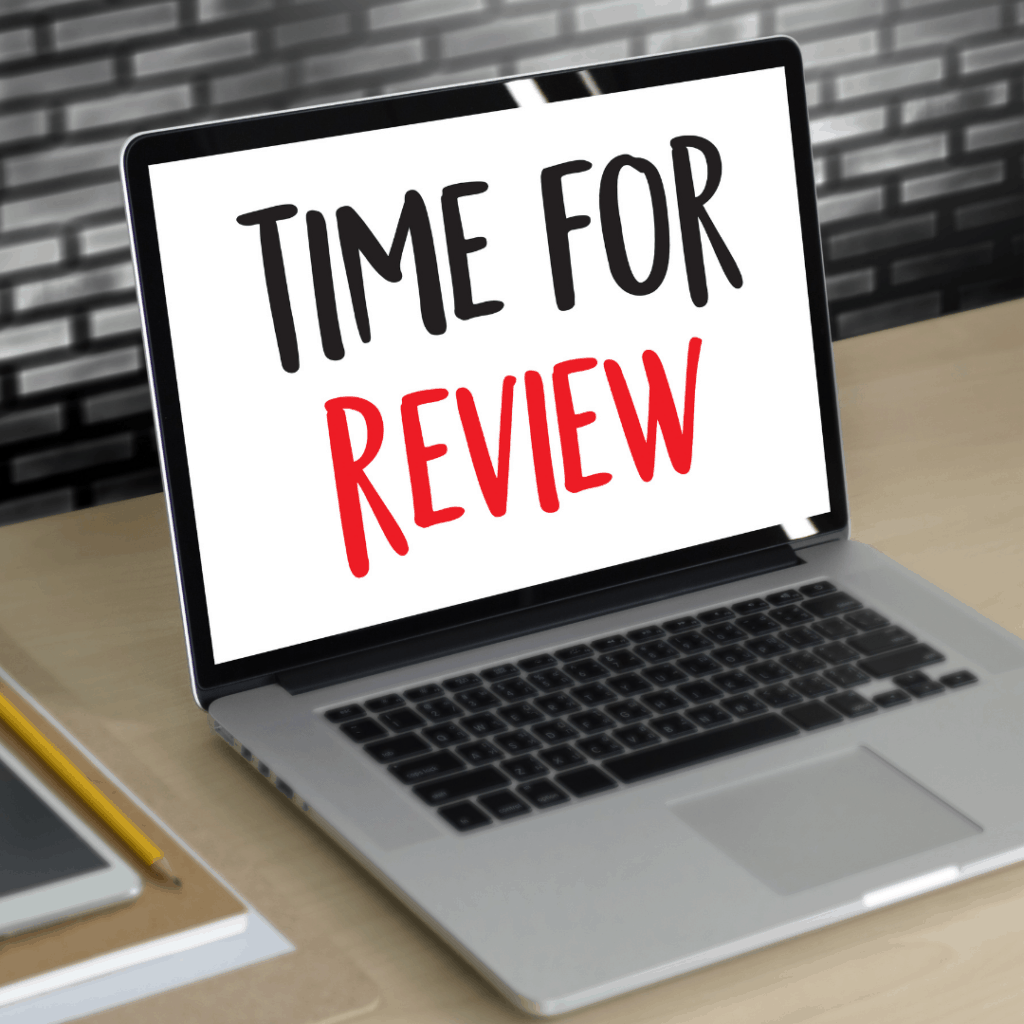
Not all kids learn at the same pace in school. Some pick up lessons and skills quickly, while others need extra support to thrive.
Starting at a young age children experiencing delays in speech and language development may struggle to keep up in class. It’s harder to learn when you can’t express yourself clearly or process the teacher’s words. These issues also affect a kid’s ability to interact and participate in class and social situations. Individualized Education Programs (IEP) and online speech therapy are practical solutions that can help your child develop language skills that allow them to feel confident and engaged in the classroom.
Look Out for Signs that Your Child Needs IEP

Parents should look out for signs that the child is unable to cope. Kids rarely talk about what is upsetting them or if they can’t understand their study material. Unable to explain the frustration, it’s common for a child to answer concerned questions with tears and anger.
These are a few examples of signs that a speech IEP might be helpful:
- Your child’s speech is often difficult to understand, or only family can figure out what he’s saying.
- She’s struggling in class but she can’t explain why.
- He mispronounces certain sounds like “p” or “k.”
- She doesn’t seem to listen to instructions.
- He has trouble with the timing and flow of conversations with classmates.
Talk to the teachers about how your child is doing and if they have noticed similar behavior with in-class assignments. Consider requesting an Individualized Education Program (IEP) if necessary to get them the extra help they need.
However, before you do that, get in touch with the pediatrician and have them assess the child’s speech and hearing abilities. It will be much easier for the trained educators to develop a good program for your child if they know what the little one is dealing with.
Understanding the IEP Program

Federal law ensures that all children receive equal education opportunities. According to the Individuals with Disabilities Education Act (IDEA), any child requiring assistance will get the help they need. Kids with disabilities can access Free Appropriate Public Education (FAPE). The Individualized Education Program (IEP) is a legal document drawn up by a team of experts in multiple disciplines in partnership with parents. Numerous conditions fall under the category of “disability.” They range from Autistic Spectrum Disorder to hearing impairment or learning disabilities.
An IEP includes long-term goals in a “goal bank.” For children whose IEPs include speech and language processing objectives, a few examples could be:
- Skillful production of a difficult sound like “k” or “r”
- Using and taking good care of a hearing amplification system
- Speaking smoothly or at an easily-understood pace
- Using practiced mouth movements to produce clear sounds
- Identifying figurative speech like metaphors
- Writing grammatically correct sentences
Each year, the IEP speech goal bank is re-evaluated according to how well the child responds to the training.
Evaluating the Child for IEP

The IEP is a detailed document designed to include all the supports, tools, and services that your child will need to cope with their speech and language processing challenges. Information gathered after teachers, parents, and staff members evaluate the child is noted in the document as a starting point. Like, for instance,
- Any observations made about the child’s performance in class. (Such as, it takes the student a long time to respond to questions.)
- Need for help with IEP speech therapy because of language deficits
- Scores in individual standardized tests to evaluate academic proficiency
- Assessment of behavior and overall social skills
Parents are invited to discuss areas where their child needs assistance, so please bring any paperwork collected throughout the process. If you have any medical or other test results that could be helpful, bring them along.
Take notes for future reference and prepare written queries in advance, so you remember to put forward your views. In case your child has been receiving any form of speech therapy, add the information to the file you present.
Putting Together the IEP Plan

Once the evaluation and meeting are complete the school team will put together a plan in keeping with the school district regulations. This list comprises the different tools and allowances provided by the school to help your child. For instance, audiobooks might be part of an IEP for speech, or special equipment for taking notes, or an extended time permitted for writing exams and tests.
In case your child needs special audio-visual learning aids to reach their academic, behavioral management, or speech IEP goals, the school will provide them to you. Other assistance like reduced homework and classwork assignments and verbal or visual devices to aid learning can be invaluable for children needing help to overcome their learning disabilities.
As a parent, you can help with homework at home and provide lots of love and encouragement. When schoolwork or language practice starts to grow frustrating, take an active break with fun workout apps to blow off some physical steam while your child’s hard-working language centers take a rest.
Reevaluating the IEP
Once your child has been enrolled in an IEP, you can expect that the school will conduct a fresh evaluation once every three years.
At the meeting held later, the child’s progress is discussed along with how well they have attained their IEP speech goal bank milestones. Changes can be made in the program to accommodate your child’s growing needs and improved skills.
The IEP is a valuable program that can ensure that your child gets to keep learning and growing in a supportive educational environment. If you think your child needs assistance, get an evaluation, and get the learning process started as soon as possible.
*This post was submitted by a subject matter expert in education from Pocket Prep. PocketPrep creates award-winning exam prep apps that show students how to prepare for the material in ways that eliminate any weak spots. All of their practice questions are written by industry experts, and each question comes with a detailed explanation.
Thanks for reading!
If you like it, then pin it!



Christine Weis is a passionate educator, classroom management coach, wife, and mom of two busy boys. She enjoys teaching, writing, and creating resources for teachers.





This is the first time I heard about Individualized Education Programs (IEP)! It sounds like a great initiative for kids. I hope I can utilize this.
IEP is so great for kids…Every child needs equal chance to grow and develop…I am so thankful for yhe signs to lookout you shared that not many people know about
IEP is such a wonderful program for kids progress. All kids deserve equal chance. Very nice read.
It’s great that every child is given the support they need. Thanks for sharing this informative post with us.
What a great program to help kids progress. I have to check if they offer this here!
I am so glad we have this student support now. In the Philippine, it took so many years to address children-related deficiencies such autism, speech deficiencies , etc. Te IEP is a huge help.
I know a lot of friends who have a child with an IEP. It is so important to have a good program in place.
Very interesting. I wish there was this program when my daughter still was in school.
Oh yes these are just so important!
IEP really is such a smart approach to learning. Every child is different, and the way we teach them should be reflective of their best method of learning.
IEP programs can help kids progress. It’s nice to have programs in place to help our kids.
My son has an IEP for speech! I’m so grateful for all the help he’s getting
Good post. We have been dealing with IEPs since my daughter started school. I wish we had this info in such a straightforward manner when we started our IEP journey! Thanks for sharing!
I love the idea of individualized education. I think it’s a lot better than traditional education because the former can help you formulate strategies that are fit for your child’s needs.
This is really great information! I learned a lot reading your post today. Thank you for sharing. 🙂
It is important that learning difficulties be given proper attention right away. I love that there are IEP available. I wish this was also available in my country.
This is so helpful! Thanks for sharing this, people need to see this especially those who just started parenting stage
Early intervention is one of the key and with proper help and guidance they can truly excel.
Thank you for sharing this information about individualized education programs. My three year old is actually exploring one now.
The help is in the name…individualized! True help that is specific to the needs of the specific person.
I learned all about IEPs when my middle daughter was in preschool. I’m so grateful for the teachers that caught her speech issue early on.
So important to spot that a child needs extra support as early as possible to give them the best chance in life. This is a really useful guide to individualised education programs they could benefit from.
Fantastic work. All kids deserve a chance in life. The beat chance and one of the key fundamentals is through education.